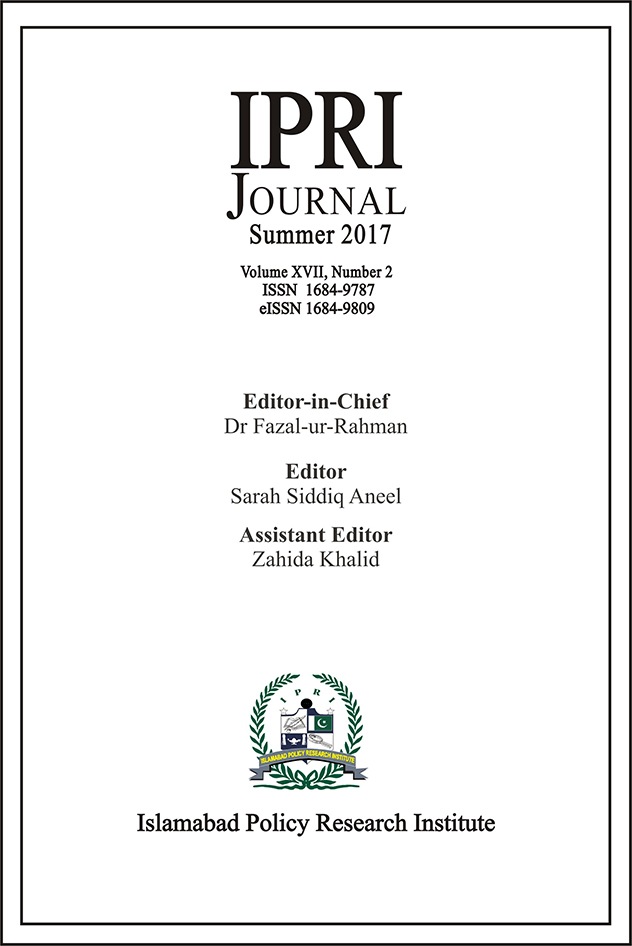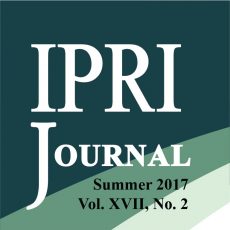
Scholarly Articles
Contested Space of the Objectives Resolution in the Constitutional Order of Pakistan
Dr Syed Sami Raza
With incorporation of the Objectives Resolution in Article 2-A — or in the substantive part of Pakistan’s Constitution — a number of cases surfaced in the superior courts challenging different laws and even constitutional provisions that appeared contradictory to the Resolution. Thus, this incorporation shook the coherence of its structured organisation, which also brought back the question of Islam’s place in the Constitution. Dr Raza engages constitutional theory debate on the structured organisation of Pakistan’s Constitution and sheds light on how the Supreme Court responded to the incorporation of the Resolution in the value-neutral or justiciable part.
From Paradigms of Orthodoxy to Postmodernism: The Changing Perspective of Government
Dr Tahir Ul-Mulk Kahlon and Dr Aneel Salman
This article examines the evolution and development of governance paradigms, in an endeavour to educate public policy actors in Pakistan, emphasising the need to embrace contemporary ideas and discriminately draw on new models that are contextually appropriate to satisfy the needs of the citizenry. The authors expose the necessity to transform from directorial form of governance towards emphasis on citizens’ motivations and collaborative public policy solutions.
Iran Nuclear Deal: Implications for the Middle East and Possibility of a Regional Security Forum
Dr Muhammad Tehsin
The Middle East region can ill-afford destabilising conflicts which entail violent extremism, proxy warfare and nuclear proliferation. The United States has restrained Iran’s nuclear programme through successful application of soft power. Iran’s possible return to the mainstream community after the nuclear deal has caused escalation in Arab concerns and Saudi-Iranian tensions. This situation calls for a rapprochement between the two countries. The implementation process of nuclear safety and security under the International Atomic Energy Agency (IAEA) provides an opportunity to regional states to move towards the establishment of an inclusive Regional Security Forum under a multi-layered cooperative framework to reduce threat perceptions and improve regional stability.
Strategic Expediency or Sway: Analysing Pakistan’s Case for Joining the Islamic Military Alliance
Asim Ahmed and Mahroona Hussain Syed
The Islamic Military Alliance of 34 Muslim countries, as proposed by the Kingdom of Saudi Arabia, is a force with the purpose to defeat the soaring menace of terrorism. Saudi Arabia considers Pakistan a frontline ally and included it as a member of this Alliance, albeit without consultation. The Government of Pakistan declined to join. The decision has been made from a foreign policy lens, whereas participation has not been considered from a strategic military perspective. This article raises key strategic questions while analysing the benefits, or otherwise, of military alliances from the framework of military expansionism, linking them with the mix of geostrategic complexities faced by Pakistan.
Book Reviews
- Shadi Hamid, Islamic Exceptionalism: How the Struggle over
Islam is Reshaping the World – Umar Farooq Khan
- Naeem Ahmad Salik, Learning to Live with the Bomb
Pakistan: 1998 – 2016 – Sameer Ali Khan
- Javid Husain, Pakistan and a World in Disorder: A Grand
Strategy for the Twenty-First Century – Adeel Mukhtar Mirza
- Hong Liu, The Chinese Strategic Mind
– Dr Ahmad Rashid Malik


